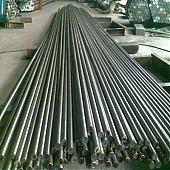Food Grade Stainless Steel Sheet

When the stainless steel products in the use of the migration of heavy metals in more than a limited, may endanger human body health. Stainless steel cookware production, therefore, need to find a balance between corrosion resistance and safety. If a high content of nickel, chromium, anti-corrosion function enhanced, but the resulting amount of nickel, chromium precipitation increases, means more security risks. Because of this, the stainless steel products (GB9684-2011) national food safety standards, the cooking utensils in chromium, cadmium, nickel, lead and other heavy metal precipitation quantity index made strict rules.
Why don't the national standard of manganese migration limit (not provided for the vast majority of countries in the world)? One reason is that with the increase of manganese content in stainless steel, with the function such as cookers, corrosion resistance, no rust, once high manganese content to a certain value, the product cannot be used as a cooker or cannot call stainless steel cookware. But even if such a high manganese content, generally will not impact on health. So, the national food safety standards, though not to the manganese content in regulation, but made clear that the main part of the food containers, must conform to the national standard of stainless steel materials.
Food grade stainless steel sheet is GB9684 standard stainless steel. 304 stainless steel is one of the most common stainless steel, stainless steel industry also called 18/8. Its corrosion resistance is better than 430 stainless iron, corrosion resistance high temperature resistance, good processing performance, thus is widely used in medical industry and furniture decoration industry and food industry, for example, some high-grade stainless steel tableware, kitchen bathroom appliances. 304 is a kind of common stainless steel, it is widely used to make for a good comprehensive performance, corrosion resistance and formability of equipment and parts. In order to keep inherent corrosion resistance of stainless steel, steel must contain more than 17% of chromium, more than 8% of the nickel content. Generally not food grade 304 stainless steel, special processed is food grade.
Related Products

Factory Introduction
High temperature resistance of 304 and 316 stainless steel
How Galvanized Pipes Are Made